
Mouttagiaka: The Coastal Gem of Limassol
Nestled along the sun-kissed shores of Limassol, Mouttagiaka is a picturesque neighbourhood that beckons with its blend of serene beaches, vibrant culture, and historic charm. The area is famed for its crystal-clear waters and sandy stretches that make it a haven for beach lovers and water sports enthusiasts alike. Whether you're looking to bask in the Mediterranean sun or dive into thrilling activities like jet skiing and parasailing, Mouttagiaka offers an idyllic coastal escape. But Mouttagiaka is more than just its beautiful coastline. Venture inland, and you'll discover a rich tapestry of Cypriot culture and history. The neighbourhood boasts a variety of cosy tavernas where you can savour traditional Cypriot cuisine, from freshly grilled seafood to mouth-watering meze. The local markets are a delight, offering everything from handmade crafts to local produce, giving visitors a taste of authentic Cypriot life. Moreover, Mouttagiaka's strategic location makes it an excellent base for exploring the broader Limassol area. Just a short drive away, you can explore ancient ruins, lush vineyards, and charming villages that dot the Cypriot countryside. Whether you're a history buff, a foodie, or simply in search of relaxation, Mouttagiaka promises a well-rounded and enriching travel experience.
Local tips in Mouttagiaka
- Visit early in the morning or late afternoon to avoid the midday heat and enjoy quieter beach time.
- Try the local seafood at the beachfront tavernas for an authentic taste of Cypriot cuisine.
- Rent a bike to explore the coastal paths and enjoy scenic views of the Mediterranean.
- Check out the local markets for unique souvenirs and fresh produce.
- Use Mouttagiaka as a base to explore nearby historical sites and vineyards in the Limassol region.
Mouttagiaka: The Coastal Gem of Limassol
Nestled along the sun-kissed shores of Limassol, Mouttagiaka is a picturesque neighbourhood that beckons with its blend of serene beaches, vibrant culture, and historic charm. The area is famed for its crystal-clear waters and sandy stretches that make it a haven for beach lovers and water sports enthusiasts alike. Whether you're looking to bask in the Mediterranean sun or dive into thrilling activities like jet skiing and parasailing, Mouttagiaka offers an idyllic coastal escape. But Mouttagiaka is more than just its beautiful coastline. Venture inland, and you'll discover a rich tapestry of Cypriot culture and history. The neighbourhood boasts a variety of cosy tavernas where you can savour traditional Cypriot cuisine, from freshly grilled seafood to mouth-watering meze. The local markets are a delight, offering everything from handmade crafts to local produce, giving visitors a taste of authentic Cypriot life. Moreover, Mouttagiaka's strategic location makes it an excellent base for exploring the broader Limassol area. Just a short drive away, you can explore ancient ruins, lush vineyards, and charming villages that dot the Cypriot countryside. Whether you're a history buff, a foodie, or simply in search of relaxation, Mouttagiaka promises a well-rounded and enriching travel experience.
Iconic landmarks you can’t miss
Limassol Castle - Cyprus Medieval Museum
Explore Limassol Castle, a medieval fortress in Cyprus, showcasing history and breathtaking views of the Mediterranean coast.
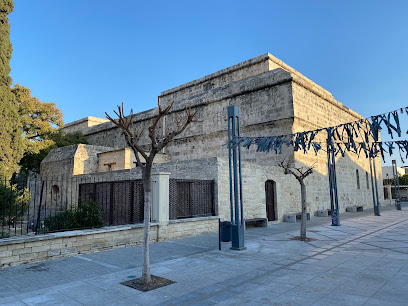
Dasoudi
Discover the serene beauty of Dasoudi Park in Germasogeia, Cyprus, where lush landscapes and stunning beach views await every traveler.
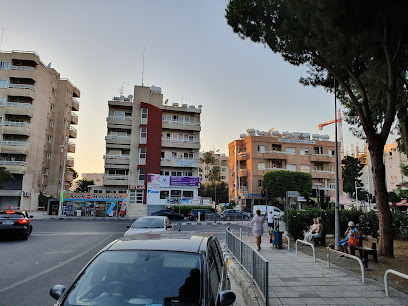
Archaeological Site of Amathous
Discover the captivating ruins of Amathous, an ancient city-kingdom in Cyprus, where history, beauty, and culture converge in a stunning coastal setting.
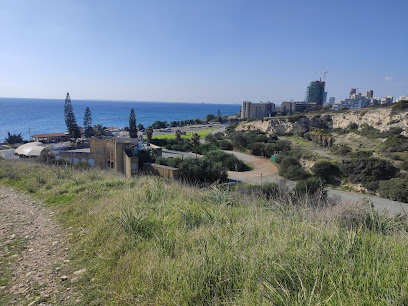
Archaeological Museum of the Lemesos (Limassol) District
Discover the fascinating history of Cyprus at the Archaeological Museum of the Lemesos District, where ancient artifacts unveil the island's rich heritage.
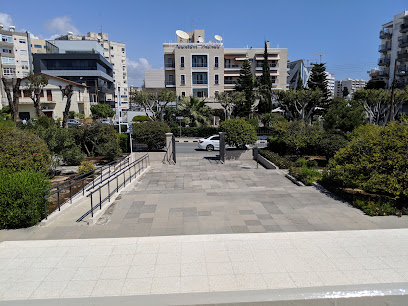
House of Eustolios
Explore the House of Eustolios in Episkopi, Cyprus - a captivating historical landmark with stunning mosaics and rich cultural heritage.
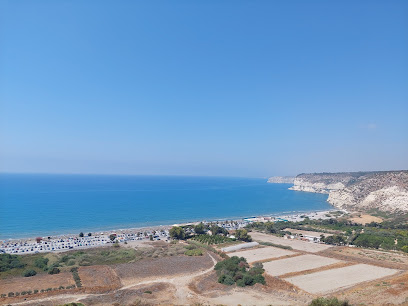
The Water Tower
Discover Limassol's iconic Water Tower: a historic landmark showcasing the city's industrial heritage and offering picturesque views in a vibrant urban setting.
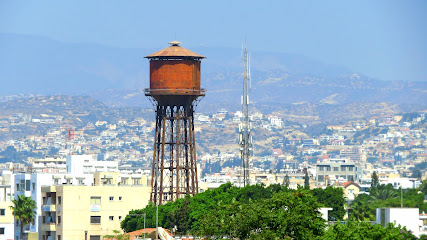
Mouttagiaka amphitheatre
Discover the Mouttagiaka Amphitheatre, a stunning open-air venue in Cyprus that blends breathtaking views with rich cultural experiences.
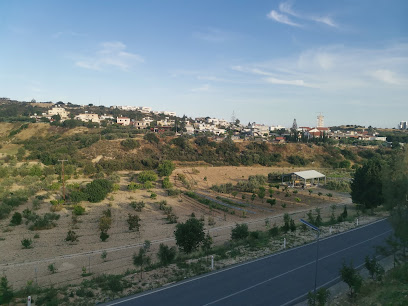
Stoa Phylactou
Explore Stoa Phylactou: A historical arcade where Venetian-Frankish architecture meets local crafts on Limassol's vibrant Agiou Andreou Street.
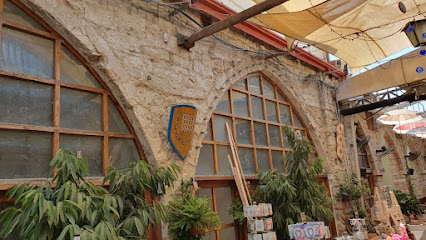
Yellow House
Explore the historic Yellow House in Limassol – a vibrant landmark showcasing Cyprus's rich cultural heritage and architectural beauty.
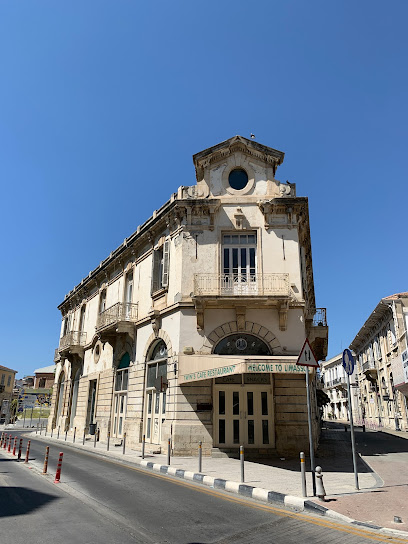
Βρύση της Λασμαρκάς
Explore the historical charm of Lambarka, a captivating landmark in Agios Theodoros, Cyprus, where rich heritage meets stunning architecture.
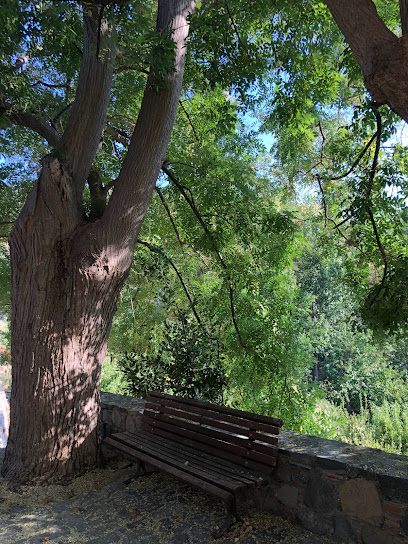
Unmissable attractions to see
Molos Limassol - Promenade
Experience the heart of Limassol at Molos Promenade: a vibrant seaside park with stunning views, art, culture, and activities for everyone along the Mediterranean coastline.
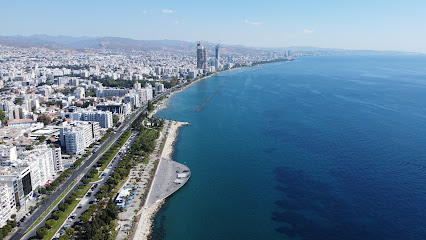
Limassol National Forest Park
Escape to nature in Limassol's National Forest Park: recreation, education, and stunning city views, just minutes from the urban center.
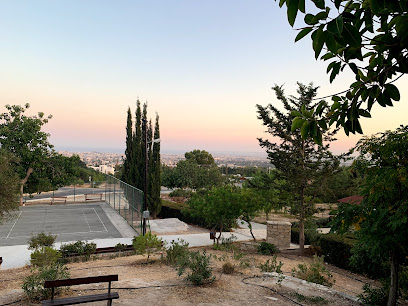
The Water Tower
Discover Limassol's iconic Water Tower: a historic landmark showcasing the city's industrial past and offering picturesque views in the heart of the old town.
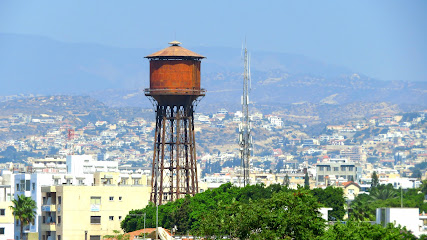
Stoa Phylactou
Discover Stoa Phylactou in Limassol: A historical arcade blending Venetian-Frankish architecture with vibrant local shops on Agiou Andreou Street.
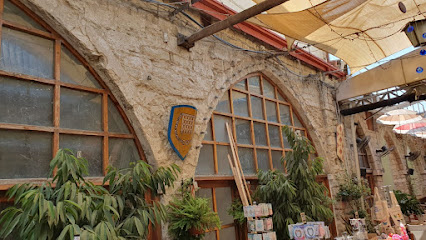
Agios Tychon Beach
Discover Agios Tychon Beach: Golden sands, crystal waters, and ancient history combine for the perfect Cyprus escape.
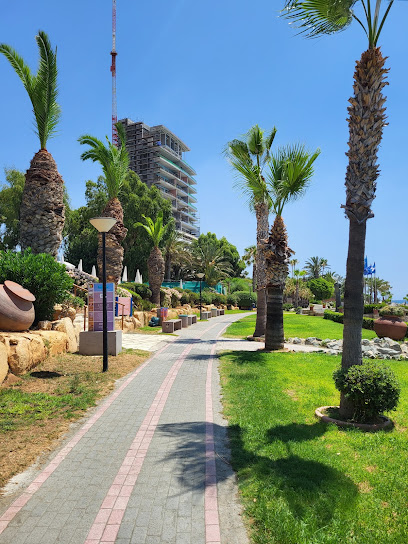
Bust of GIANNAKIS POTAMITIS
Honoring an environmental pioneer in Germasogeia, Cyprus. Discover the legacy of Giannakis Potamitis and his dedication to preserving the island's natural beauty.
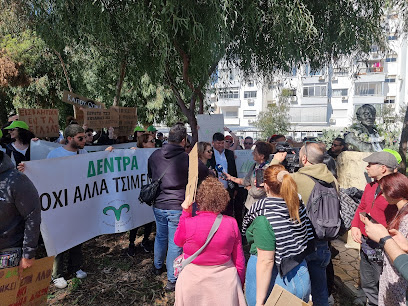
Lania
Discover Lania, Cyprus: A picturesque mountain village with rich history, traditional architecture, vibrant arts, and renowned winemaking heritage.

Essential places to dine
The Garden
Experience the vibrant flavors of Cyprus at The Garden - where exquisite cuisine meets serene surroundings in Limassol.
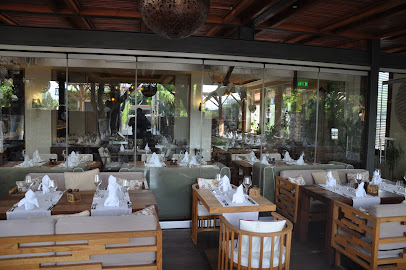
Forsos Tavern
Discover authentic Cypriot meze at Forsos Tavern in Mouttagiaka - a must-visit restaurant for food lovers exploring Limassol.
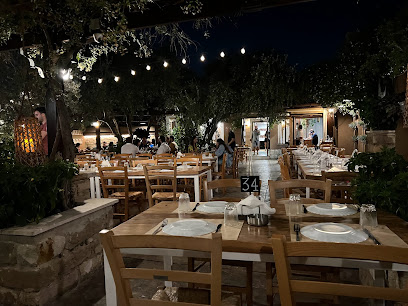
NOA
Discover NOA in Agios Athanasios – where fresh Mediterranean seafood meets modern elegance for an unforgettable dining experience.
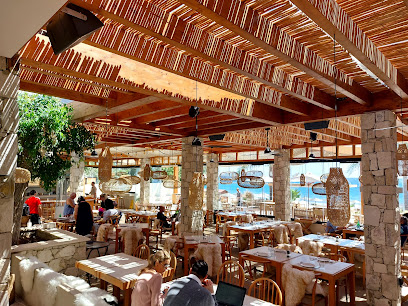
Como Osteria Lounge & Bar
Discover authentic Italian flavors at Como Osteria Lounge & Bar in Limassol – where every dish is crafted to perfection.
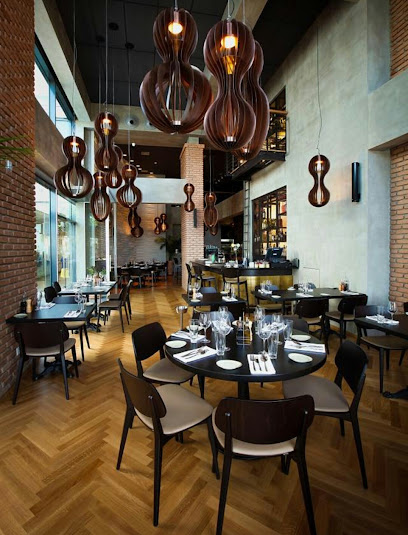
La Maison Fleurie Restaurant Limassol
Experience authentic French cuisine at La Maison Fleurie in Limassol - where Mediterranean flair meets exquisite flavors.
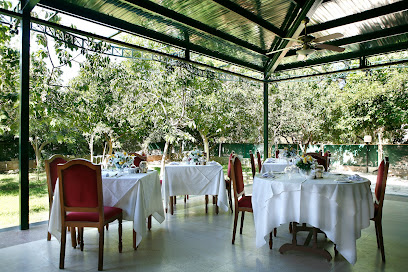
That's Amore Limassol
Experience the taste of Italy in Limassol at That's Amore - where every meal is a celebration of authentic flavors.
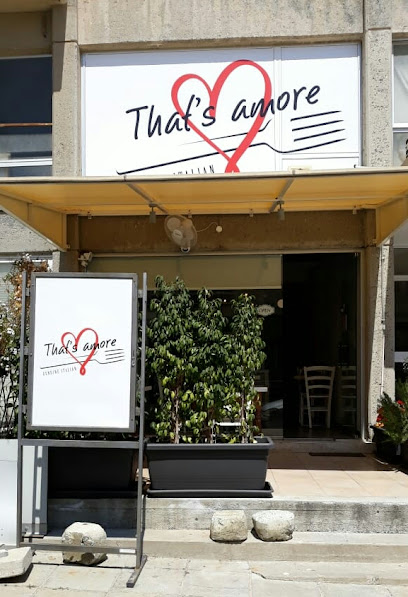
ΤΑΒΕΡΝΑ ΓΙΑΛΟΥΣΑ
Savor the taste of Cyprus at Taverna Gialousa - where tradition meets flavor in every dish.
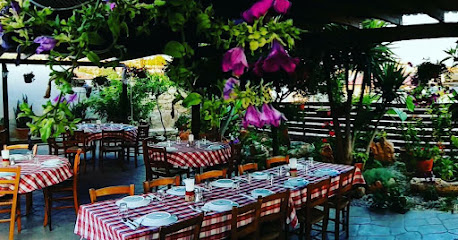
Sera By Ettore Botrini
Experience authentic Italian cuisine at Sera By Ettore Botrini in Agios Tychon, Cyprus—where tradition meets elegance.
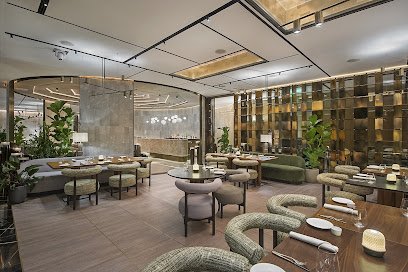
ΚΑΡΙΠΑΛΤΗΣ Εστιατόριο & Παιχνιδότοπος
Discover culinary delights and family fun at Καριπαλτης Restaurant & Play Area in Mouttagiaka - where every meal is an adventure!
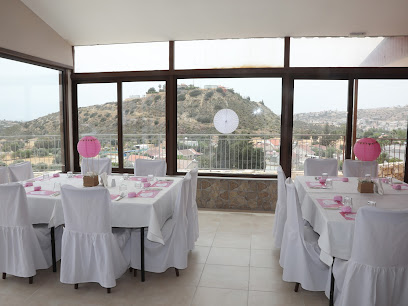
Limassol
Experience the blend of culture and relaxation in Limassol – where stunning beaches meet rich history and delectable seafood delights await.

Markets, malls and hidden boutiques
First Boutique
Discover the epitome of luxury shopping at First Boutique in Limassol, where style meets elegance amidst the vibrant Cypriot culture.
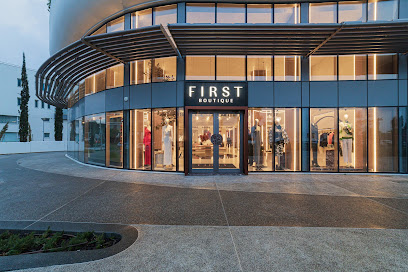
Fullah Sugah | Woman Brand Shopping Limassol
Explore contemporary women's fashion at Fullah Sugah in Limassol, offering stylish clothing, handbags, and accessories for every occasion.
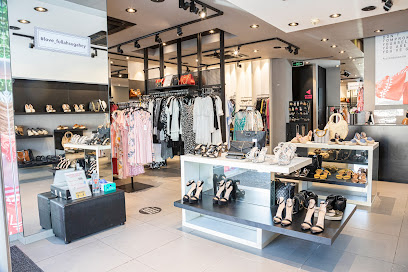
Hyper Fashion Boutique Limassol
Explore the latest fashion trends and unique styles at Hyper Fashion Boutique Limassol, your go-to destination for chic shopping in Cyprus.
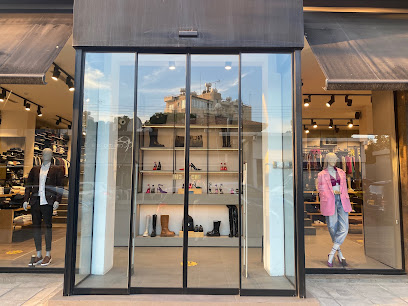
IAMINHATELOVE INDIE DESIGNER STORE
Explore IAMINHATELOVE Indie Designer Store in Limassol for unique clothing and accessories that showcase creativity and individuality.

Minimalistic boutique
Discover Limassol's Minimalistic Boutique, where contemporary elegance meets unique fashion and lifestyle treasures in a serene shopping atmosphere.
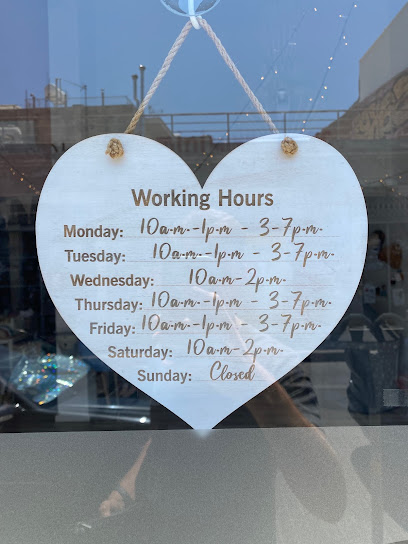
Hawana Gift Boutique Limassol
Explore the essence of Cyprus at Hawana Gift Boutique Limassol, your destination for unique gifts, fine beverages, and local treasures.
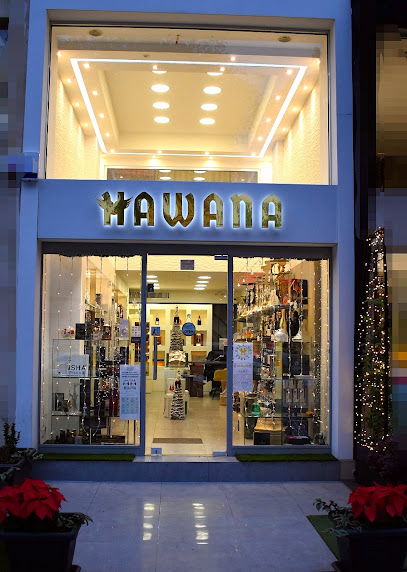
Emilie Store
Explore Emilie Store in Limassol for unique clothing, stylish accessories, and a chic shopping experience that captures the essence of Cyprus.
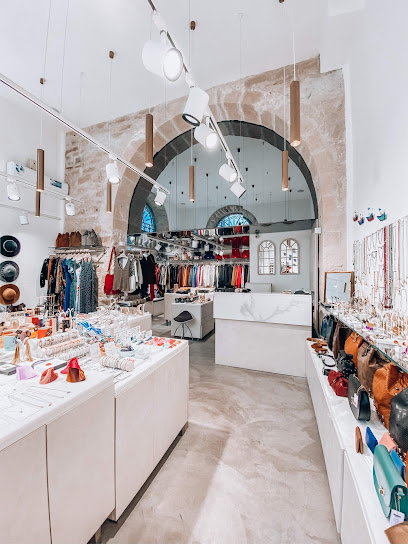
Γουαδελούπη - Guadeloupe Concept Store
Explore the charm of Limassol at Guadeloupe Concept Store, where unique gifts and local artistry come together in a vibrant shopping experience.
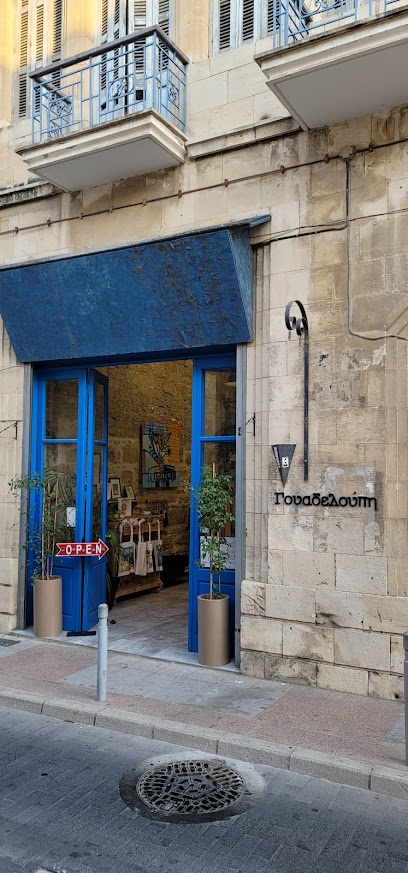
Window Boutique Limassol
Discover unique fashion pieces at Window Boutique Limassol, where contemporary style meets Cypriot flair in a delightful shopping experience.
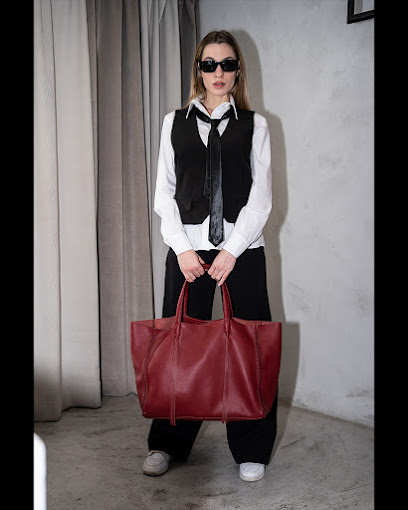
Geminist boutique
Explore the latest women's fashion trends at Geminist Boutique in Limassol, where style meets elegance and uniqueness.

Essential bars & hidden hideouts
Gin Garden - FIND US ACROSS THE STREET AT LIBRARY BAR
Discover the tranquil oasis of the Gin Garden in Limassol, where exquisite gin meets a charming atmosphere for an unforgettable evening.
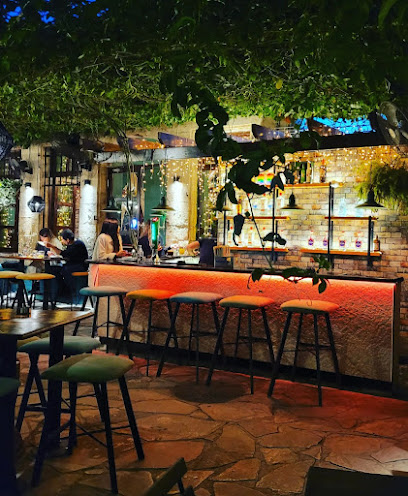
Sto Dromo Bar
Discover Sto Dromo Bar in Limassol's Old Town, a vibrant spot for delicious drinks and a cozy atmosphere, perfect for tourists and locals alike.
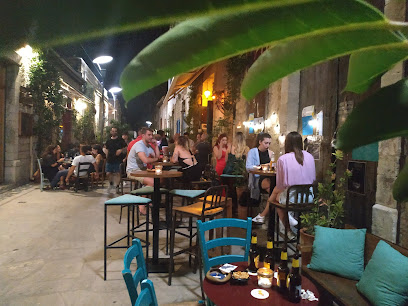
Mandarin Bar
Discover the elegance of Mandarin Bar in Limassol, where exquisite wines and cocktails meet a warm and inviting atmosphere.
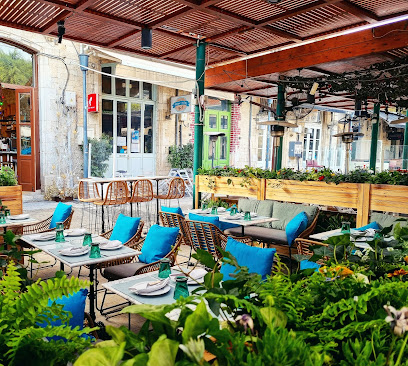
Dusty Munky
Experience Limassol's vibrant nightlife at Dusty Munky, where creative cocktails and live music create an unforgettable atmosphere.
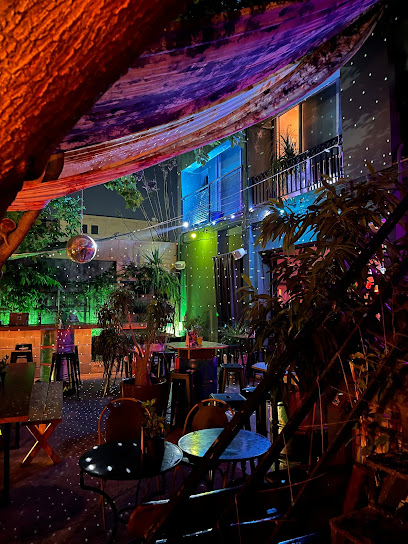
Last Word
Discover Last Word in Limassol, Cyprus – a cocktail bar where innovative drinks meet a cozy atmosphere for an unforgettable night out.
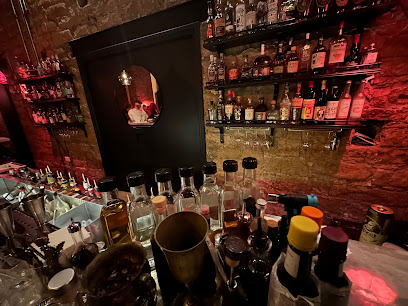
BordelloBar Limassol
Experience the vibrant nightlife of Limassol at BordelloBar, where eclectic decor and a lively ambiance create unforgettable moments.
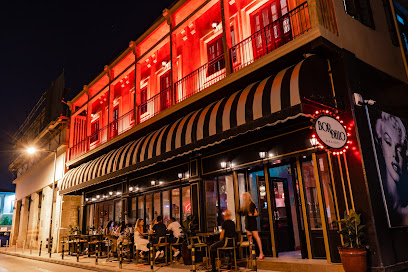
Coa Rooftop Bar
Discover breathtaking views and a vibrant atmosphere at Coa Rooftop Bar, the perfect spot for cocktails and relaxation in Limassol, Cyprus.
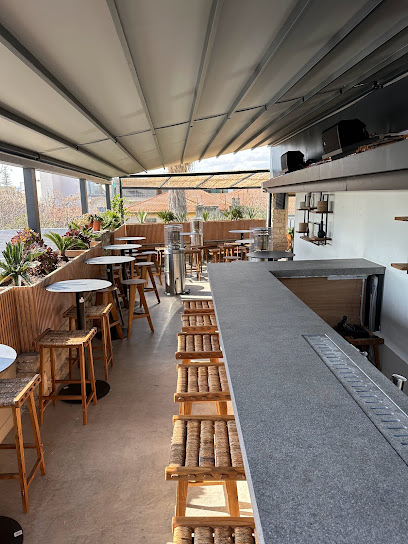
Soho Bar
Experience the vibrant nightlife at Soho Bar, Limassol's premier cocktail destination, blending creativity and atmosphere for unforgettable moments.
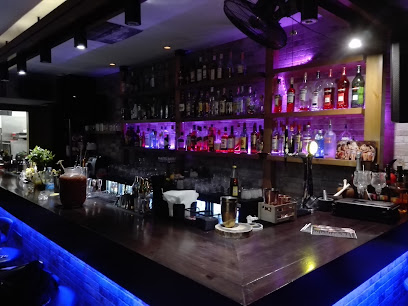
bar NESTA
Discover the magic of mixology at bar NESTA, Limassol's premier cocktail destination, offering innovative drinks and a vibrant atmosphere.
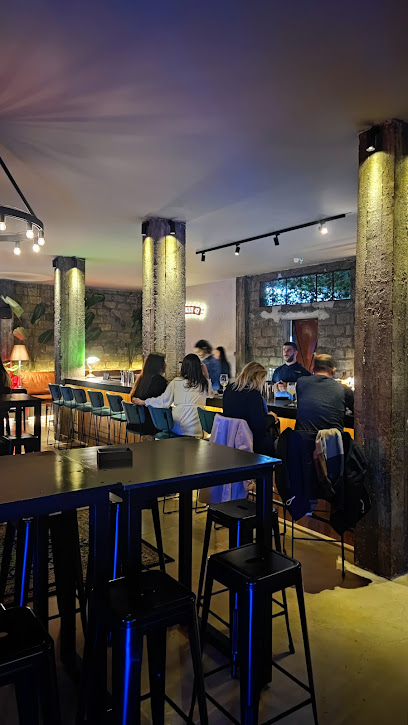
The Wine Bar
Experience the essence of wine culture at The Wine Bar in Limassol, where every sip tells a story and every visit is a celebration.
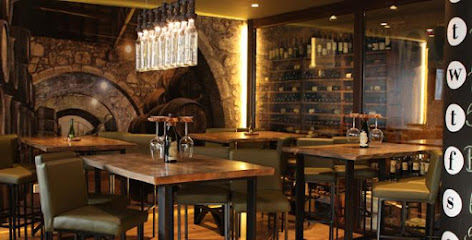
Local Phrases
-
- HelloΓεια σου
[Ya su] - GoodbyeΑντίο
[Adio] - YesΝαι
[Ne] - NoΌχι
[Ohi] - Please/You're welcomeΠαρακαλώ
[Parakalo] - Thank youΕυχαριστώ
[Efharisto] - Excuse me/SorryΣυγγνώμη
[Signomi] - How are you?Πώς είσαι;
[Pos ise;] - Fine. And you?Καλά. Εσύ;
[Kala. Esi;] - Do you speak English?Μιλάς αγγλικά;
[Milas anglika;] - I don't understandΔεν καταλαβαίνω
[Den katalaveno]
- HelloΓεια σου
-
- I'd like to see the menu, pleaseΘα ήθελα να δω το μενού, παρακαλώ
[Tha ithela na do to menu, parakalo] - I don't eat meatΔεν τρώω κρέας
[Den troo kreas] - Cheers!Υγεία!
[Iyia!] - I would like to pay, pleaseΘα ήθελα να πληρώσω, παρακαλώ
[Tha ithela na pliros o, parakalo]
- I'd like to see the menu, pleaseΘα ήθελα να δω το μενού, παρακαλώ
-
- Help!Βοήθεια!
[Voithia!] - Go away!Φύγε!
[Fige!] - Call the Police!Καλέστε την Αστυνομία!
[Kaleste tin Astinomia!] - Call a doctor!Καλέστε έναν γιατρό!
[Kaleste enan giatro!] - I'm lostΈχω χαθεί
[Eho hathi] - I'm illΕίμαι άρρωστος
[Ime arrostos]
- Help!Βοήθεια!
-
- I'd like to buy...Θα ήθελα να αγοράσω...
[Tha ithela na agoras o...] - I'm just lookingΑπλά κοιτάω
[Apla kitao] - How much is it?Πόσο κοστίζει;
[Poso kostizi;] - That's too expensiveΑυτό είναι πολύ ακριβό
[Afto ine poli akribo] - Can you lower the price?Μπορείτε να μειώσετε την τιμή;
[Borite na meiosete tin timi;]
- I'd like to buy...Θα ήθελα να αγοράσω...
-
- What time is it?Τι ώρα είναι;
[Ti ora ine;] - It's one o'clockΕίναι μία η ώρα
[Ine mia i ora] - Half past (10)Μισή (10)
[Misi (10)] - MorningΠρωί
[Proi] - AfternoonΑπόγευμα
[Apoyevma] - EveningΒράδυ
[Vradi] - YesterdayΧθες
[Hthes] - TodayΣήμερα
[Simera] - TomorrowΑύριο
[Avrio] - 1Ένα
[Ena] - 2Δύο
[Dio] - 3Τρία
[Tria] - 4Τέσσερα
[Tessera] - 5Πέντε
[Pente] - 6Έξι
[Exi] - 7Εφτά
[Efta] - 8Οκτώ
[Okto] - 9Εννιά
[Ennia] - 10Δέκα
[Deka]
- What time is it?Τι ώρα είναι;
-
- Where's a/the...?Πού είναι ένας/η...
[Pou ine enas/i...] - What's the address?Ποια είναι η διεύθυνση;
[Pia ine i diefthinsi;] - Can you show me (on the map)?Μπορείτε να μου δείξετε (στο χάρτη);
[Borite na mou dixete (sto charti);] - When's the next (bus)?Πότε είναι το επόμενο (λεωφορείο);
[Pote ine to epomeno (leoforeio);] - A ticket (to ....)Ένα εισιτήριο (για το ....)
[Ena isitirio (gia to ....)]
- Where's a/the...?Πού είναι ένας/η...
History of Mouttagiaka
-
Mouttagiaka's history is intertwined with the rich tapestry of Cyprus, with evidence of habitation dating back to ancient times. The area, located near the coast, was likely influenced by its proximity to ancient city-kingdoms such as Amathus, which flourished in the region. Archaeological findings in and around Limassol reveal that this area was a hub for trade and cultural exchange, reflecting the diverse influences of the various civilizations that inhabited Cyprus.
-
During the Ottoman period (1571-1878), Mouttagiaka began to develop more distinctively as a village. The Ottomans implemented agricultural reforms and infrastructure improvements, which encouraged growth in local communities. This era saw the establishment of more permanent settlements and the introduction of new agricultural practices that shaped the economy of the area, fostering a strong sense of community among the residents.
-
With the British annexation of Cyprus in 1914, Mouttagiaka, like much of Limassol, experienced modernization. The British introduced new administrative systems and improved transportation networks, contributing to the expansion of the village. This period also marked the beginning of a significant shift in the local economy, as tourism began to emerge as a vital industry, setting the stage for Mouttagiaka's development into a popular resort area.
-
The late 20th century saw Mouttagiaka transform into a sought-after tourist destination, driven by its beautiful beaches and proximity to Limassol. The development of hotels, restaurants, and entertainment venues catered to the influx of visitors, significantly altering the village's landscape and economy. This period solidified Mouttagiaka's identity as a vibrant coastal community, blending its traditional roots with modern tourist offerings.
-
Today, Mouttagiaka represents a unique blend of cultures, influenced by its historical connections and modern developments. The neighborhood showcases traditional Cypriot architecture alongside contemporary buildings. Local festivals and events reflect the rich cultural heritage of the area, celebrating both its past and the diverse influences that have shaped its identity, making it an integral part of Limassol's cultural landscape.
Mouttagiaka Essentials
-
Mouttagiaka is located approximately 10 kilometers east of Limassol's city center. To get there, you can take a local bus from Limassol's main bus station; routes 30 and 31 frequently service the area. Taxis are also widely available and provide a quick and convenient option. If you're driving, Mouttagiaka is easily accessible via the A1 motorway, with clear road signs leading directly to the neighborhood.
-
Mouttagiaka is best explored on foot, especially along the coastal promenade, which is pedestrian-friendly. Local buses operate within the area and connect to nearby neighborhoods, including the bustling city center. For a more leisurely experience, consider renting a bicycle or scooter to navigate the scenic coastal roads. Taxis are easily accessible for longer distances or late-night travel.
-
Mouttagiaka is generally safe for tourists, with low crime rates. However, travelers should remain vigilant, especially in crowded public areas or when enjoying nightlife. It is advisable to avoid dimly lit streets late at night. While there are no specific high-crime areas targeting tourists, standard precautions should be taken with personal belongings.
-
In case of an emergency, dial 112 to reach local emergency services. Hospitals in Limassol are well-equipped, and there are pharmacies in Mouttagiaka for minor health issues. It's advisable to have travel insurance that covers medical emergencies. Keep a list of important contacts, including your accommodation and local emergency numbers.
-
Fashion: Do wear comfortable clothing suitable for warm weather, but also bring a light sweater for cooler evenings. Don't wear beachwear away from the beach. Religion: Do respect local customs, especially in religious sites. Don't take photographs in places of worship without permission. Public Transport: Do be polite and give up your seat to elderly passengers. Don't play loud music or speak loudly on public transport. Greetings: Do greet locals with a friendly 'Kalimera' (Good morning). Don't forget to make eye contact when speaking. Eating & Drinking: Do try local Cypriot dishes and enjoy outdoor dining. Don't refuse food or drink offered to you, as it is considered impolite.
-
To experience Mouttagiaka like a local, visit the beachfront tavernas for authentic Cypriot cuisine. Engage with local vendors at the markets to discover fresh produce and handmade goods. Participate in local festivities, especially during the summer, to immerse yourself in the culture. Take leisurely walks along the coast at sunset for breathtaking views, and don’t hesitate to chat with locals, as they are often welcoming and eager to share their stories.







